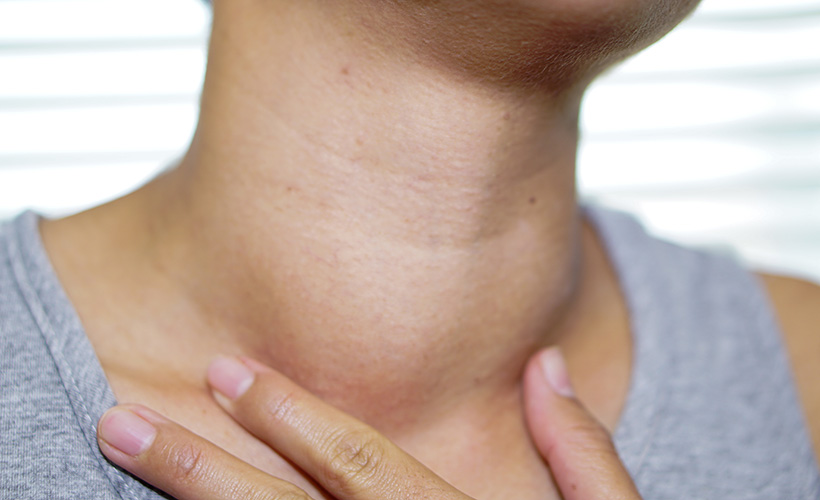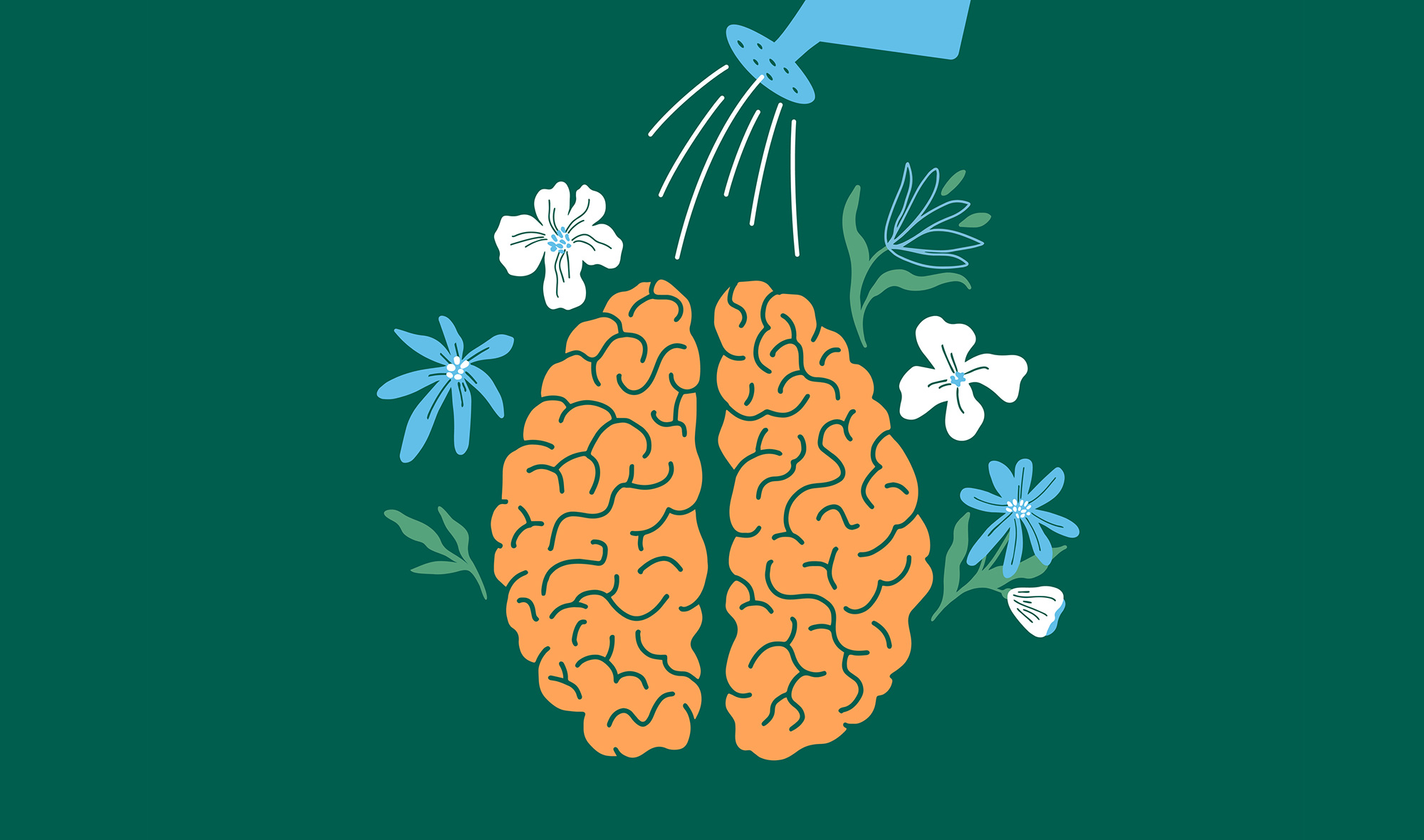The thyroid gland and the importance of iodine
The thyroid is a gland at the base of your neck. It produces thyroid hormones like T4 and T3. Thyroid hormones control how much energy our body produces, your body temperature and your heart rate. Doctors call this our metabolic rate. Too much thyroid hormones and our body seems to go too fast, not enough and everything slows down.
Your body needs iodine to make thyroid hormones. The iodine content of New Zealand soils is low and therefore locally produced foods are also low in iodine. In New Zealand good sources of iodine are fish, shellfish and seaweed. Iodine is important for thyroid hormones and to support normal growth and development in children including brain development. Our low iodine levels were causing thyroid problems in New Zealand, so our salt was ‘iodised’ in 1924. The levels were increased in 1938. Since 2009 bread in New Zealand has been fortified with iodine. This has helped increase iodine levels for New Zealanders and to reduce thyroid problems. If you don’t use iodised salt or you don’t eat bread, talk to your pharmacist about a supplement to ensure you are getting enough iodine. If you are pregnant, your midwife or doctor will talk to you about taking an iodine supplement to help your baby develop.
Underactive thyroid symptoms, causes, treatments
Symptoms of underactive thyroid (hypothyroidism) include:
- Swollen thyroid gland (known as goitre)
- Fatigue
- Weight gain
- Not being able to cope with being cold
- Dry, rough, pale skin
- Constipation
- Facial swelling (known as oedema)
- Hoarseness
- Coarse, dry hair or hair loss
- Depression, memory loss
- In children: slowed growth and mental development
Even mild thyroid failure can result in depression, memory loss, slowed thinking. There can also be effects on the heart and on cholesterol levels.
Thyroid function tends to decrease with age. Overall about 1% of New Zealand women have lowered thyroid function and 0.1% of men. Up to 10% of women over 60 years have ‘sub-clinical’ hypothyroidism. This is where there are no obvious symptoms but a blood test shows the thyroid function is declining.
Causes
The most common cause of low thyroid in New Zealand is Hashimoto’s thyroiditis. This is an inherited autoimmune disease where your antibodies attack your own thyroid causing inflammation.
Other causes include if you had previously had an overactive thyroid and this has been treated with radioactive iodine or surgery. Some people are born with a thyroid that doesn’t function well. Occasionally an infection can stop the thyroid working but this is usually only temporary. As above a lack of iodine in the diet can cause low thyroid function.
You are much more likely to have hypothyroidism if you are a woman and over 60 years old.
Treatment
Low thyroid function is due to not enough naturally produced thyroid hormone. The treatment is to give a manufactured thyroid hormone called thyroxine. This is given as a tablet once daily. The dose might be adjusted at the beginning of treatment to get the right dose for you. Once settled, you keep taking this extra thyroxine for the rest of your life, and have regular blood tests to make sure it is still the correct dose for you.
Even borderline low thyroid (hypothyroidism) is often treated because of the potential effects on the heart and cholesterol levels.
Overactive thyroid symptoms, causes, treatments
Symptoms
Hyperthyroidism is when your body produces too much thyroid hormone. This increases your metabolism so everything speeds up. Typical symptoms include:
- Unintended weight loss
- Increased appetite
- Rapid heartbeat
- Irregular heartbeat (arrhythmia)
- Pounding of your heart (palpitations)
- Nervousness, anxiety and irritability
- A fine trembling in hands and fingers
- Sweating
- Changes in menstrual patterns
- Sensitive to heat
- More frequent bowel motions
- Overactive thyroid can cause swollen thyroid gland (goitre) – just like underactive thyroid can
- Fatigue, muscle weakness
- Difficulty sleeping
- Thin skin, fine, brittle hair
Older adults are likely to have few or no symptoms.
Sometimes with hyperthyroidism there is a problem called Graves’ ophthalmopathy which makes the tissues behind the eyes swell and the eyes bulge. This is more likely to happen if you smoke.
Causes
Grave’s disease causes hyperthyroidism. It is an autoimmune disease which stimulates your thyroid to produce too much thyroid hormone. Another cause of hyperthyroid is nodules in your thyroid that produce extra thyroid hormones.
Sometimes your thyroid gland can become inflamed after pregnancy, because of an autoimmune condition or even for no known reason. That inflammation can cause extra thyroid hormone stored in the thyroid to leak into your bloodstream so you have too much circulating thyroid hormone.
Treatment
There are anti-thyroid tablets that can be prescribed for overactive thyroid. Other treatment options include radioactive iodine or surgery to remove part of the thyroid gland. The treatment will depend on your own symptoms and causes.
See your doctor if:
Do go and see your doctor if you have any of the signs of over or underactive thyroid. Think of underactive thyroid as everything slowing down: weight gain, cold, tired, depressed. Overactive thyroid is like everything speeding up: weight loss, hot, overactive, palpitations.
Over and underactive thyroid are easy to treat. Your doctor will ask about your symptoms and then get a blood test. They will then be able suggest the best treatment for you.
Written by Linda Caddick
This blog provides general information and discussion about medicine, health and related subjects. The information contained in the blog and in any linked materials, are not intended nor implied to be a substitute for professional medical advice.













Community